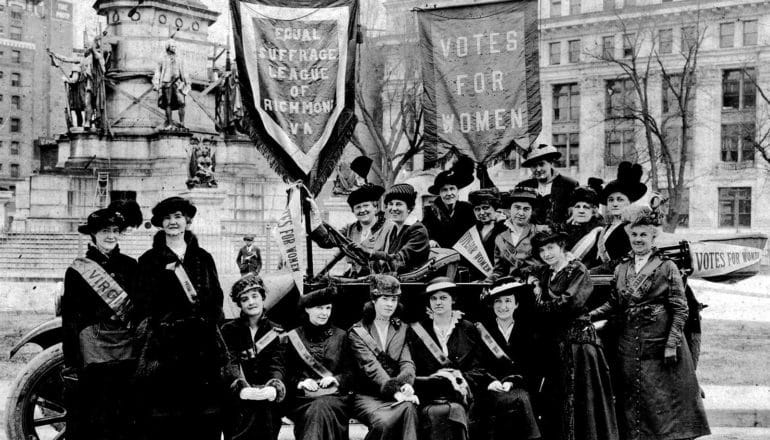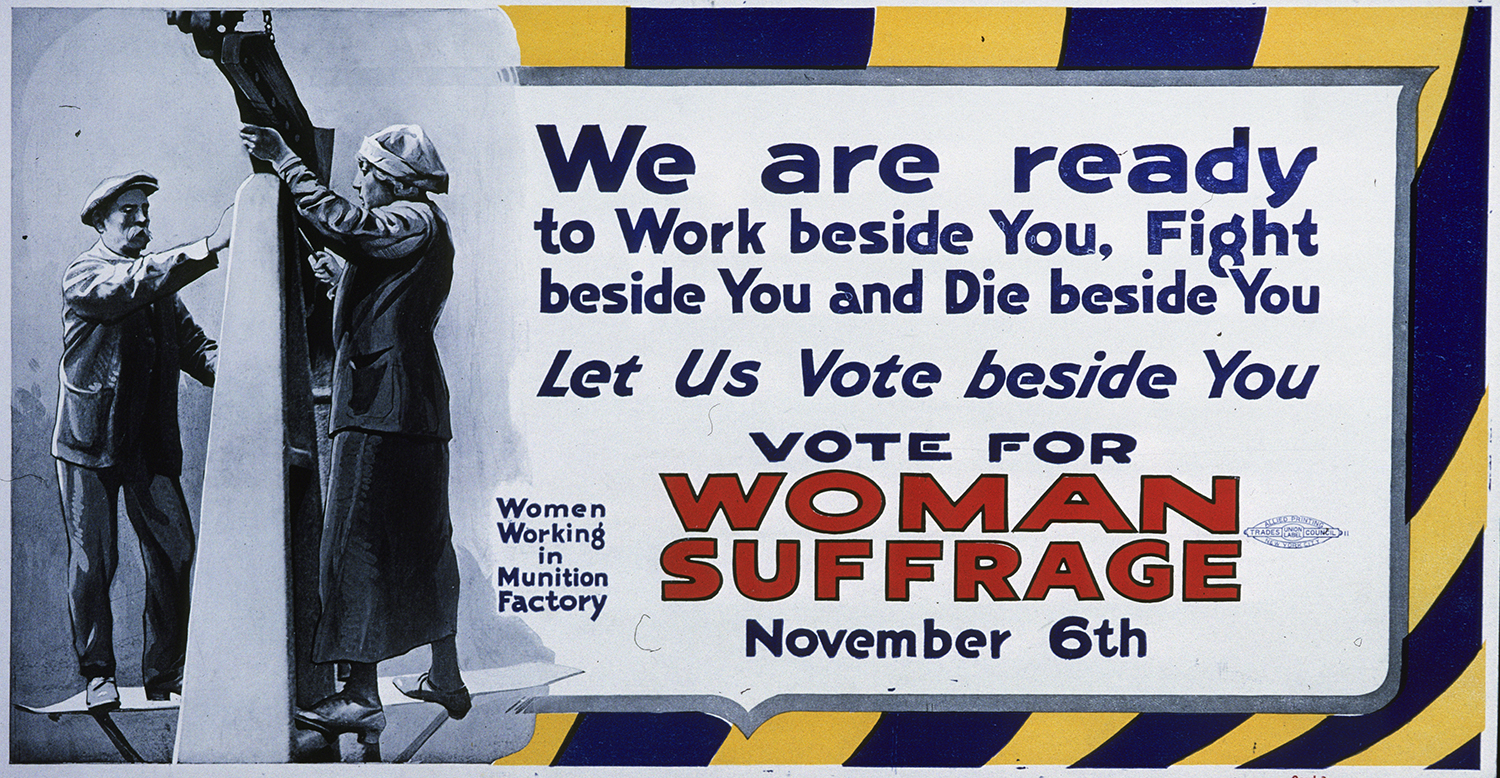
While American women had been fighting for the right to vote for decades prior to the ratification of the 19th Amendment on August 18, 1920, it was not until World War I that their cause for political independence regained momentum, argues legal scholar Pamela S. Karlan.
As women filled jobs vacated by men fighting the war overseas, public attitudes toward women’s role in American democracy began to shift dramatically. By 1918, President Woodrow Wilson acknowledged to Congress that the role of women was vital to the war effort, explains Karlan, professor of public interest law at Stanford University.

“Suffragists conscripted rhetorical claims advanced in favor of the war, and pointed to women’s key role on the home front, to bolster their arguments in favor of domestic expansion of voting rights,” says Karlan,. “Times of crisis can be opportunities to make real progress.”
While white women have encountered few legal obstacles to voting since the amendment’s ratification, however, Black Americans have endured persistent racial discrimination—despite the 15th Amendment’s parallel prohibition denying citizens the right to vote on account of race or color.
Here, Karlan discusses what the 19th Amendment accomplished and the challenges that persist today:
The post WWI changed public attitude about women’s suffrage appeared first on Futurity.
from Futurity https://ift.tt/3axTuKT
No comments:
Post a Comment